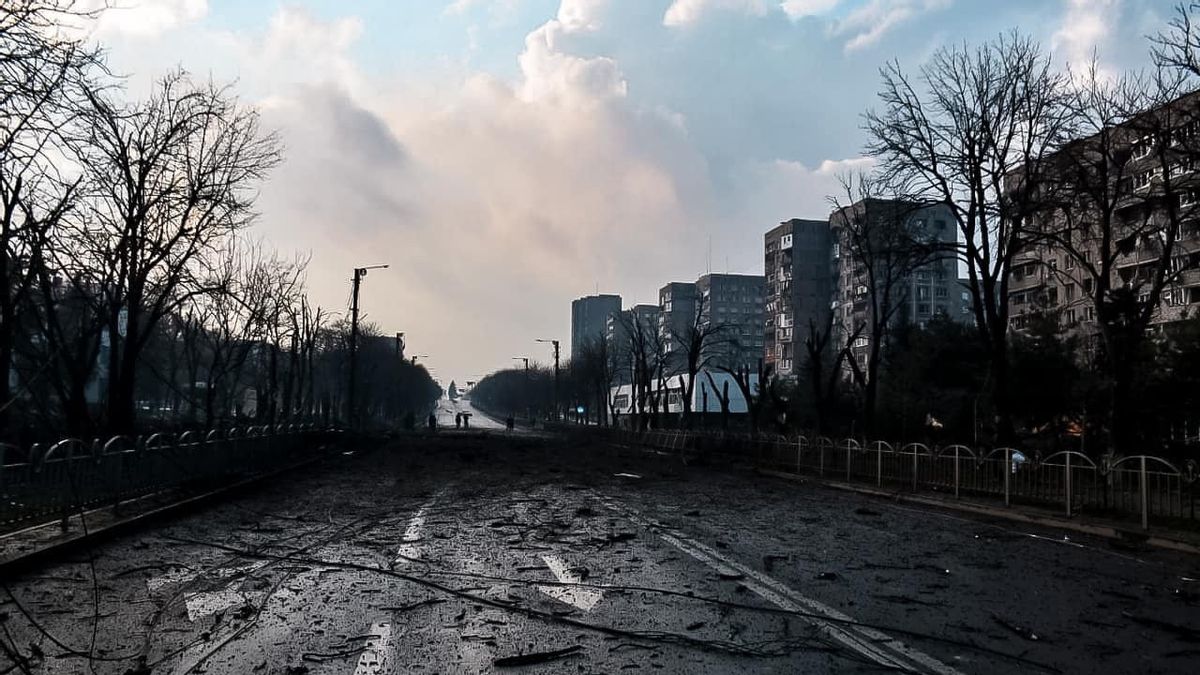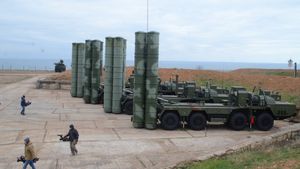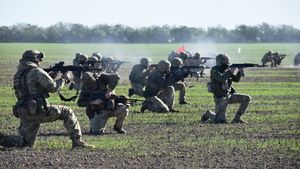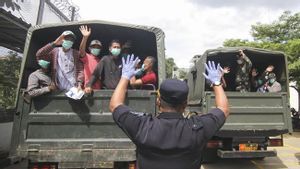JAKARTA - Nearly 5.000 people, including about 210 children, have been killed in the southern Ukrainian city of Mariupol since Russian forces surrounded it, the mayor's spokesman said Monday.
It was not immediately clear how Mayor Vadym Boichenko calculated the toll, during a month of Russian bombings that have devastated the city, trapping tens of thousands of residents without electricity and with few supplies.
Boichenko's office said 90 percent of Mariupol's buildings had been damaged and 40 percent destroyed, including hospitals, schools, kindergartens, and factories.
About 140,000 people had fled the city on the Sea of Azov before the Russian siege began and 150,000 have left since, leaving 170,000 still there, according to figures, which Reuters could not immediately verify, as quoted on March 29.
Boichenko, who is no longer in Mariupol, said on national television early Monday that about 160,000 civilians were still trapped in the city.
"People are outside the line of humanitarian disaster. We have to evacuate Mariupol completely," he said.
Ukraine said it was impossible to create a safe corridor on Monday, citing intelligence reports of possible Russian "provocations" along the route.
Russia, which invaded Ukraine on February 24, denies targeting civilians and blames Ukraine for its repeated failure to agree on a safe corridor for trapped residents.
"The Russian Federation is playing with us. We are in the hands of the invaders," Boichenko quipped.
Mariupol is widely seen as a strategic gift, as capturing it could allow Russia to create a land bridge between Crimea, which Moscow annexed in 2014, and two separatist pockets in eastern Ukraine.

People who have fled Mariupol have described how difficult it was to live for weeks under near-constant bombardment.
"There is no food for the children, especially babies. They give birth to babies in basements because women have nowhere to give birth, all maternity hospitals are destroyed," a grocery worker from Mariupol who gave her name only as Nataliia told Reuters after reach nearby Zaporizhzhia.
"I also discovered today that the parents of my son's classmate were torn apart right in the courtyard before his eyes."
He said trapped residents had spent time looking for snow they could melt to get water to wash their hands.
Separately, Valeriia, a 20-year-old student from Mariupol, said electricity, internet access, water, and heating had been cut off on March 2. Soon after, fierce fighting broke out nearby and part of his house was destroyed.
"Continuous shooting, shooting. We sat in the corridor, we didn't sleep or eat properly for several days. Because as soon as you get out of there, the shooting starts and you run back," he said bitterly.
He and his sister were given a lift out of town by another resident who fled in a private car. They left their parents.
SEE ALSO:
As for Sergiy, a metallurgical factory worker, remembers the Grad rockets hitting buildings and people being killed.
"There was a man passing by, this Grad, sounding cynical, hit him and ripped his body apart. I saw bodies lying around the city, you could see mines exploding and shrapnel hitting people," he said.
The fierce resistance in Mariupol and the tenacity of Russia's efforts illustrate how strategic the city is. Russia had asked for the resistance to stop and Ukrainian troops to lay down their arms, which they opposed and was reluctant to 'hand over Mariupol.
Some time ago, President Zelensky called the siege of Mariupol a war crime and a "terror that will be remembered for centuries to come."
The English, Chinese, Japanese, Arabic, and French versions are automatically generated by the AI. So there may still be inaccuracies in translating, please always see Indonesian as our main language. (system supported by DigitalSiber.id)


















